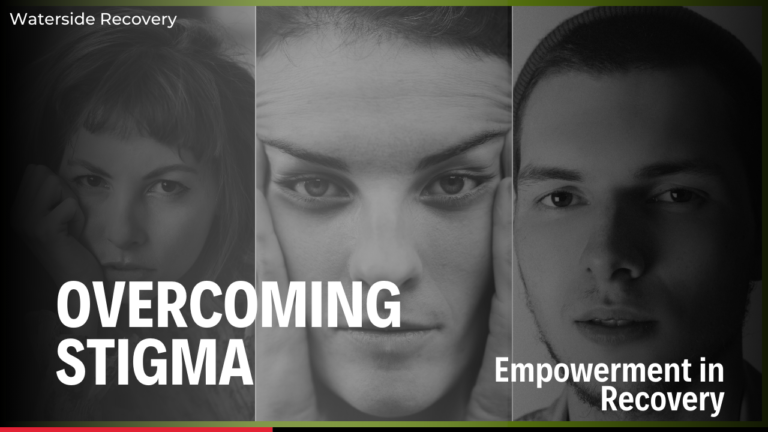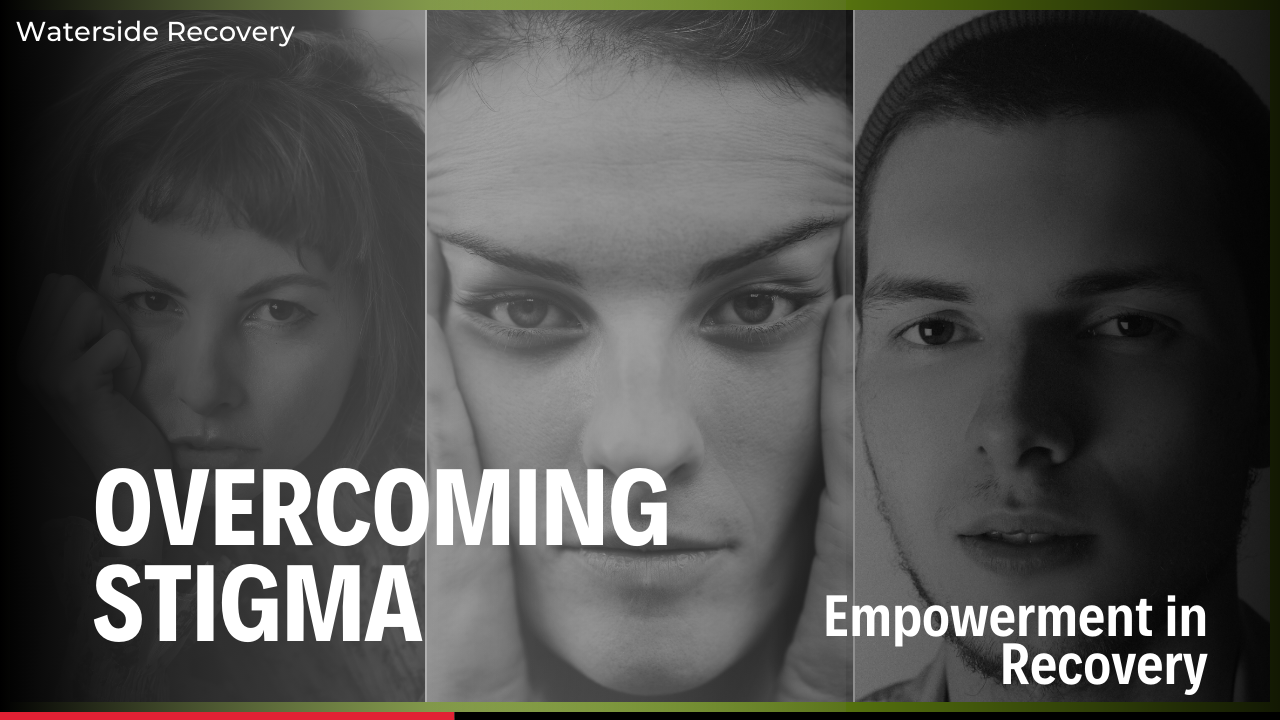
Rising Above: Conquering Stigma on the Road to Recovery
Addiction is a complex and multifaceted disease that affects millions of people worldwide. Unfortunately, addiction is often stigmatized, and those struggling with it may feel ashamed or embarrassed to seek help. This stigma can prevent individuals from accessing the resources they need to recover and lead fulfilling lives. However, there is hope. By sharing personal stories of addiction and recovery, individuals can help break down the barriers of stigma and encourage others to seek the support they need.
Sharing personal stories of addiction and recovery can be a powerful tool in reducing stigma and promoting understanding. When individuals share their experiences, they not only help others understand the realities of addiction, but they also demonstrate that recovery is possible. Through their stories, individuals can inspire hope and encourage others to seek the help they need to overcome addiction. Additionally, sharing stories can help break down the stereotypes and misconceptions that often surround addiction, leading to a more compassionate and informed society.
Understanding Stigma in Addiction
Defining Stigma
Stigma in addiction refers to the negative attitudes and beliefs that people hold towards individuals with substance use disorders. It is a form of social disapproval that can lead to discrimination, isolation, and shame. Stigma can be both internal and external, meaning that individuals with substance use disorders may feel shame and guilt about their condition, while also experiencing negative attitudes and behaviors from others.
Types of Stigma
There are two main types of stigma in addiction: public stigma and self-stigma. Public stigma refers to the negative attitudes and behaviors that are directed towards individuals with substance use disorders by society as a whole. Self-stigma, on the other hand, refers to the negative attitudes and beliefs that individuals with substance use disorders have about themselves.
Causes of Stigma
Stigma in addiction is often caused by misunderstandings and stereotypes about substance use disorders. Many people believe that individuals with substance use disorders are weak-willed, immoral, or lacking in self-control. These beliefs can lead to discrimination and social exclusion. Additionally, the media often portrays individuals with substance use disorders in a negative light, reinforcing these stereotypes.
Overall, stigma in addiction can have serious consequences for individuals with substance use disorders, including reduced access to treatment and increased risk of relapse. By understanding the causes and types of stigma, individuals can work to combat these negative attitudes and behaviors and promote greater understanding and acceptance of substance use disorders.
Personal Stories of Struggle and Triumph
Addiction and recovery are deeply personal experiences that can be difficult to put into words. However, sharing personal stories of struggle and triumph can help break down the stigma surrounding addiction and encourage others to seek help.
Challenges Faced
Those who have struggled with addiction often face a range of challenges, from physical health problems to strained relationships with loved ones. Many also struggle with feelings of shame and guilt, which can make it difficult to seek help.
Turning Points
For many people in recovery, there comes a turning point where they realize they need to make a change. This may be a moment of clarity, such as waking up in the hospital after an overdose, or a gradual realization that their addiction has taken over their life. Additionally, family members, friends and loved ones may help shed light on the seriousness of the problem.
Pathways to Recovery
There are many different pathways to recovery, and what works for one person may not work for another. Some people find success through 12-step programs, while others prefer alternative approaches such as cognitive-behavioral therapy or medication-assisted treatment. It’s important for individuals to find a treatment plan that works for them and to have a support system in place to help them stay on track. Additionally, participation in groups like AA, NA and other support groups have been beneficial to many.
Overall, sharing personal stories of addiction and recovery can be a powerful tool for overcoming stigma and encouraging others to seek help. By highlighting the challenges faced, turning points, and pathways to recovery, individuals can help others understand that addiction is a treatable illness and that recovery is possible.
The Role of Community and Support
Support Networks
Recovery from addiction is a challenging journey, and having a strong support system can make all the difference. Support networks can consist of family, friends, peers, and professionals who provide encouragement, guidance, and accountability. These networks can also include support groups such as Alcoholics Anonymous or Narcotics Anonymous, where individuals can share their experiences and find comfort in knowing they are not alone.
Community Involvement
Community involvement can play a vital role in addiction recovery. This can include participating in local recovery events, volunteering at a treatment center or support group, or simply being a supportive neighbor or friend. By actively engaging in the recovery community, individuals can find a sense of purpose and belonging, which can be crucial in maintaining sobriety.
Advocacy and Awareness
Advocacy and awareness efforts can help reduce the stigma surrounding addiction and encourage individuals to seek help. This can involve speaking out about personal experiences with addiction and recovery, advocating for policy changes to improve access to treatment, or participating in awareness campaigns to educate the public about the realities of addiction.
Overall, the role of community and support in addiction recovery cannot be overstated. By building strong support networks, getting involved in the community, and advocating for change, individuals can find the help and encouragement they need to overcome the challenges of addiction and achieve lasting recovery.
Strategies for Overcoming Stigma
Stigma surrounding addiction and recovery can be a significant barrier to seeking help and maintaining sobriety. However, there are strategies that individuals and communities can use to overcome stigma and promote understanding and support for those in recovery.
Education and Communication
One effective strategy is to educate people about addiction and recovery. This can include providing accurate information about the causes and effects of addiction, as well as the benefits of treatment and recovery. Communication is also essential in breaking down stigma. Encouraging open and honest conversations about addiction and recovery can help to reduce shame and promote understanding.
Policy and Legislation
Policy and legislation can also play a role in reducing stigma. Laws that support addiction treatment and recovery, such as insurance coverage for treatment and non-discrimination laws, can help to reduce stigma and promote access to care. Additionally, policies that prioritize prevention and early intervention can help to reduce the negative consequences of addiction and decrease stigma.
Empowerment and Self-Advocacy
Empowerment and self-advocacy are important strategies for overcoming stigma. Encouraging individuals in recovery to share their stories and experiences can help to reduce shame and promote understanding. Providing opportunities for people in recovery to become involved in advocacy and community outreach can also be empowering and help to reduce stigma.
By using these strategies, individuals and communities can work to overcome stigma and promote understanding and support for those in recovery.
At Waterside Recovery Centers we pride ourselves on providing the top addiction treatment in Massachusetts. With a range of evidence-based, client-focused and individualized treatment offerings, we are able to provide the ideal support for those seeking recovery from substance addiction. Please feel free to reach out to our help line at anytime.
(866)671-8620




